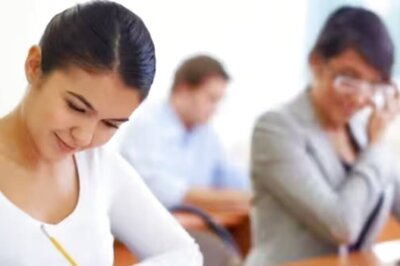
views
New Delhi: World's top billionaire business leaders like Carlos Slim and Richard Branson may be advocating for 3-day working week to boost employee productivity, but HR experts believe India is not ready for such a model. Mexican billionaire Slim, the second richest in the world, and British businessman Branson are among those who see virtues of a 3-day work week model, under which employees can work for 11-hours a day for three days, following which they can have a 4-day long off in a week.
The proponents of this believe that employee productivity can be improved with longer working hours in just three days, as against spreading them across more number of days. However, experts in India believe it may not be practical in India, at least for many industries and job profiles.
"The idea of 11-hour work days is like sprint running or a 100-meter dash and therefore the model will only suit some industries or jobs. For instance customer service, retail, entertainment and healthcare cannot operate on this model," SAP Labs India HR head T Shivaram said. "In developing economies where productivity is the key, the need is to create more jobs and therefore this model will not work," Shivaram said.
Moreover, this model can create adverse issues for workers who are paid on per-hour basis, as they might have to take up a second job to make up for the lost income. Such workers would be working for 33 hours under a three-day work model, instead of a standard 40 hours.
Joseph Devasia, Managing Partner of global executive recruitment firm Antal International Network also said that a compressed workplace culture is not at all feasible for India. "We in India are poor on productivity and a 3-day work week would reduce that further. I believe even now a 5-6 day week produces only as much as 3 days equivalent of work in the western world," he said.
Such a time schedule would also impact those with additional responsibility outside their job like parents, as they would have virtually zero free time during workdays. "In India, workplace flexibility is a growing trend, with Companies clearly seeing this as being imperative to retaining talent and keeping them productive," said Ajith Nair, India Practice Leader, Organisational Surveys & Insights, at global HR consultancy major Towers Watson.
Nair further said that flexibility does not necessarily mean reduced work hours as much as allowing employees the flexibility to choose how and where work gets accomplished while not compromising on workplace objectives.
"The model sounds interesting, but in Indian context, considering the Industrial frame work & work process, this model seems to be difficult," said G S Ramesh, Chairman of leading staffing service provider, Layam Group of Companies. A three-day work week culture will have industrial, social and legal ramifications, Ramesh said, while adding that India as such is not ready for such model for the present.
However, Rajesh Tripathi, Vice President & HR Head at industrial conglomerate GHCL Ltd, however, believes that the three day work week culture can be brought into practice in the new age industries barring the core manufacturing sector. "People on those three days can stretch themselves to the maximum keeping themselves abreast with the challenges and demands of the job and maintaining their professional attitude as well," Tripathi added.




















Comments
0 comment